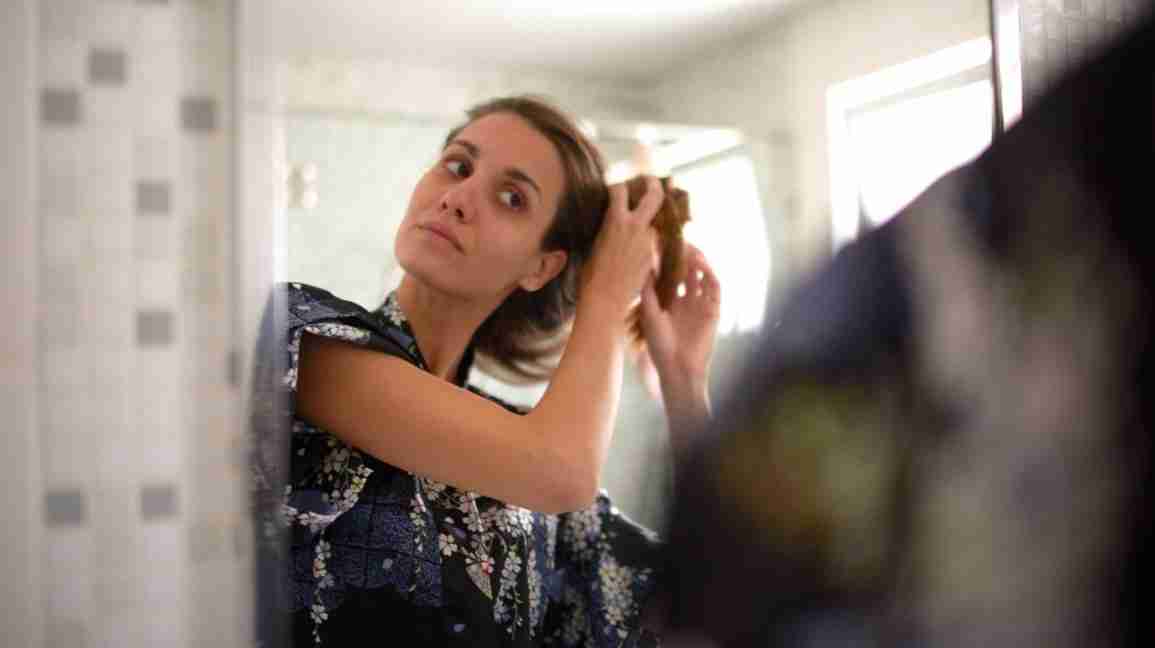
We include products we think are useful for our readers. If you buy through links on this page, we may earn a small commission. Here’s our process.
Silicone is one hair care ingredient that can really spark a fierce discussion. Used in hair products since the 1970s, it comes with a multitude of benefits.
But in recent times, silicone has also faced heavy criticism. Some people have even banned it from their hair care routines.
So why is silicone thought to be bad? And do you really need to steer clear of it? Read on for everything you need to know.
Silicone is a manmade substance with a number of uses in society.
As well as household and cosmetic products, you’ll find it in a variety of hair care products, from shampoos and conditioners to heat protectors.
It’s easy to see why silicone is a hair care staple: It coats the hair shaft, which locks in moisture, reduces frizz, and gives hair that coveted soft and silky feel.
This can be especially useful for people whose hair doesn’t tolerate humidity well.
Seeing as silicone comes with a long list of upsides, it can be difficult to see how there could be any negatives. But there is a distinct downside to silicone hair products.
The seal they create keeps hair hydrated from within, but this protective layer can block other nourishing ingredients from penetrating deep into the hair follicle.
Over time, silicone can also build up on your hair, resulting in a dry feel and dull appearance. You may even notice that your hair becomes weaker and more prone to breakage.
And if you’re using a form of silicone that isn’t water-soluble, it can be really hard to remove it with a regular wash.
Although silicone has its disadvantages, there’s nothing dangerous about this popular hair care ingredient.
Silicone isn’t a toxic chemical. In fact, it’s completely safe to apply to your hair and won’t harm your physical health in any way.
The only thing it can affect is the strength and appearance of your hair. A weighty feel, dryness, and hard-to-remove buildup are common silicone concerns.
However, you can avoid these issues without getting rid of silicone completely. For instance, you can use just a small amount of product at a time or reduce the number of times you use silicone products each week.
It’s also worth taking into account the fact there are different kinds of silicones. Some can be worse for your hair than others.
You may have a hard time finding the word “silicone” on the back of your shampoo or conditioner bottle.
That’s because there are many kinds of silicone with many different names. Generally, anything ending in “-cone” is a form of silicone.
And if you notice a “-cone” ingredient near the top of the list, it means there’s a higher percentage of it in the product.
Remember that not all silicones are created equal. Some are lighter and therefore better for your hair, while others are heavy and more prone to building up.
Look for a “breathable” silicone such as cyclomethicone. It’s lightweight and water-soluble, so it can be easily washed out.
Amodimethicone and dimethicone are common, thicker types of silicone that can weigh down hair. It may take a few sessions with a clarifying shampoo to wash these particular types out.
Top tip: Don’t believe everything you read on the label.
A lot of hair care products market themselves as “silicone-free” when they really mean they don’t contain any of the “bad” silicones.
To ensure your shampoo or conditioner is truly free from silicone, it’s best to look over the ingredients list.
If you want to embark on a silicone-free hair care routine but don’t want to lose the hydration or frizz control, opt for products with conditioning properties.
Plant-based oils and other natural ingredients offer an alternative way to nourish hair and can leave it with the same shiny look.
Examples of these plant-based oils include:
Silicone-free products to try
There are many silicone-free hair care products that can still keep your hair moisturized and shiny. Buy them online:
Deciding what to put on your hair is your decision, and your decision only. You don’t have to quit silicone — particularly if your hair is on the thick and coarse side.
But if you’re worried about the substance’s long-term effects, try cutting your usage down to once a week and applying only a small amount of product.
Of course, there’s the option to go silicone-free for good. But since silicone is found in a ton of products, it may be harder than you think.
Lauren Sharkey is a journalist and author specializing in women’s issues. When she isn’t trying to discover a way to banish migraine attacks, she can be found uncovering the answers to your lurking health questions. She has also written a book profiling young female activists across the globe and is currently building a community of such resisters. Catch her onTwitter.
